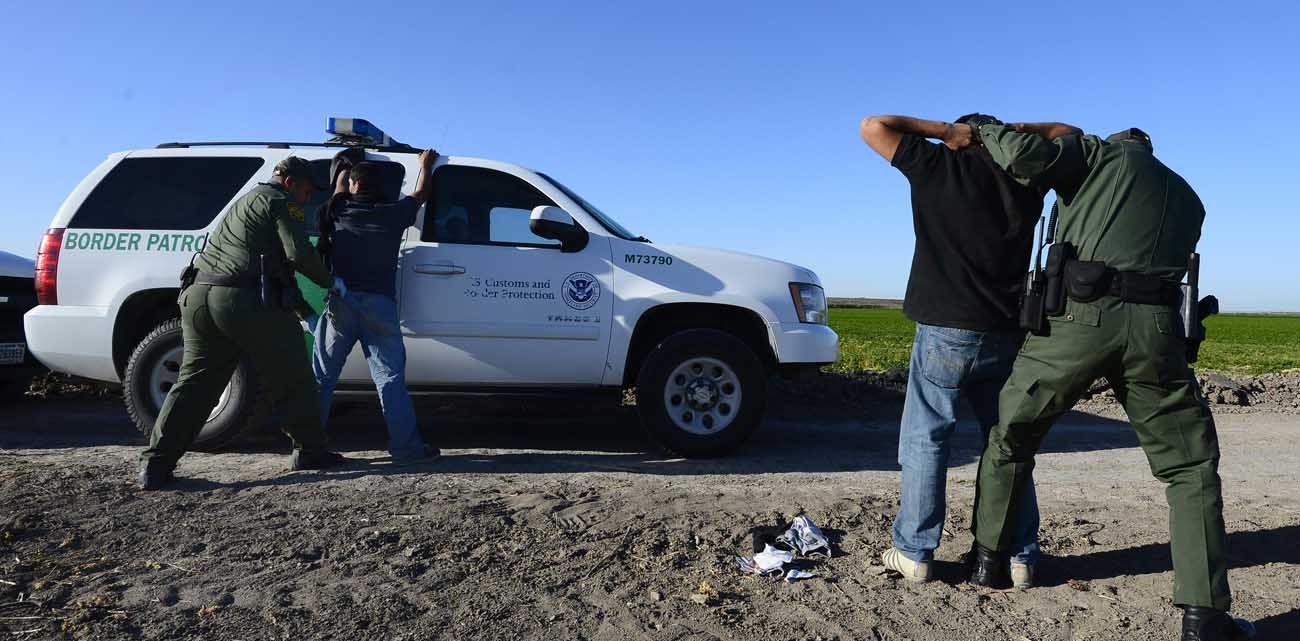WASHINGTON (CNS) — In a joint statement, Catholic bishops whose dioceses are along the U.S.-Mexico border spoke of the “pain, the fear, and the anguish” they’re seeing in immigrants and vowed to follow the example of the pope in building “bridges, rather than the walls of exclusion and exploitation.”
The Feb. 14 statement was read at the Basilica of the National Shrine of Our Lady of San Juan del Valle in Texas after a visit by the bishops to an immigration detention center as well as to a humanitarian respite center at Sacred Heart Parish in McAllen, Texas, in the Brownsville Diocese.
[hotblock]
The statement came after two days of a gathering of bishops whose dioceses are along the U.S.-Mexico border. The apostolic nuncio to the United States, Archbishop Christophe Pierre, also attended. The meeting of about 20 bishops included Bishop Daniel E. Flores of Brownsville and Archbishop Gustavo Garcia-Siller of San Antonio.
The biannual meetings began in 1986 “to address the life and pastoral needs of our migrant brothers and sisters,” the statement said, adding that “in this difficult moment in our history, we hear the cry of our migrant brothers and sisters whose voices reflect the voice of Christ himself.”
They spoke of the plight of the Holy Family as they sought refuge and a compassionate human response, and said they saw the same in immigrants they met. The suffering immigrants face is the result of “a broken immigration system caused by political structures and economic conditions that result in threats, deportations, impunity and extreme violence,” they said. Migrants are the result of these conditions and also are victims of those who seek to extort them in their work and under the threat of deportations that can lead to their separation from family and friends.
[hotblock2]
“We can sense the pain of the separation of families, loss of employment, persecutions, discrimination, racism and unnecessary deportations that paralyze the development of persons in our societies,” they said. “Immigration is a global phenomenon that arises from economic and social conditions, and the poverty and insecurity that directly displaces entire populations, causing families to feel that migration is the only way to survive.”
Migrants have the right to be respected “regardless of their migration condition,” the bishops added, because every person has the right to dignity, yet migrants are “subjected to punitive laws and often mistreated by civil authorities both in their country of origin, the countries through which they travel and the country of their destination. It is essential that governments adopt policies that respect the human rights of migrants and undocumented residents.”
In the church, they said, “there are no strangers,” and vowed to continue to support services to migrant families “including spiritual, legal, and material assistance.”
PREVIOUS: For African-Americans, new history museum ‘tells our story’
NEXT: Help a neighbor, visit grandparents as part of Lent, pastor suggests



Share this story